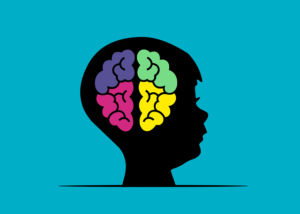 Lawyer for Children’s Mental Health Taking on Meta, SnapChat, and Other Social Media
Lawyer for Children’s Mental Health Taking on Meta, SnapChat, and Other Social Media
If your child’s mental health has been impacted by social media, you may not even know it. For years, these companies have tried to hide their dangers from parents. But as a Memphis Facebook lawsuit attorney, I believe you deserve to know the truth.
How Facebook Hurt Children’s Mental Health
For years, we’ve been wondering if social media has an impact on children and teens’ mental health. Much like with cigarettes, drugs, and other addictive activities, it seems to capture our kids’ energies in ways that are hard to control.
Facebook’s parent company Meta, which also runs Instagram and WhatsApp, knows this. In fact, they designed it that way.
The companies set out from the start to build sites that would steal our attention for the longest time possible. While that should be scary for all of us, it’s especially scary for children, whose brains haven’t fully developed yet.
 Then, once they had our kids in their grip, they pushed content that could lead to serious bodily harm, including:
Then, once they had our kids in their grip, they pushed content that could lead to serious bodily harm, including:
- eating disorder posts
- content related to suicide and self-harm
- exploitative, predatory and abusive content
And on top of all that, they didn’t warn parents about any of this. Instead, they allowed children far younger than 13 to join, despite their 13+ policy. And they promoted information to those children to help them use the sites without their parents’ knowledge.
Meta’s Policies Impacted Kids’ Mental Health
As a result of Facebook and Instagram’s policies, children and teens have struggled for years with a decline in mental health. Most of us know there’s been an increase among young people in anxiety, depression, and low self-esteem. Those numbers line up perfectly with the year Facebook came about.

Facebook’s own internal documents show how Instagram has especially hurt teens and young girls as it puts an emphasis on appearance and allows for private messaging. Young people report feeling more depressed from having used the app but unable to stop. Unfortunately, that’s usually the sign of an addiction.
This mental harm can lead to some pretty serious consequences. We’ve seen children’s addiction to social media lead them to eating disorders, exploitation, and even suicidal thoughts or actions.
It’s important to stress this could happen to anyone. Social media and the ever-changing internet confound most of us at some point—it’s extremely difficult for parents to monitor every app or understand what those apps might be doing to their children.
Instead, it was Facebook and other social media companies’ job to curb these issues, especially after they became so obvious. And yet, even after months of Congressional hearings, whistleblower reports, and public outcry, they’ve changed almost nothing about their products.
 Memphis Facebook Lawsuit Attorney
Memphis Facebook Lawsuit Attorney
I believe these platforms are the new cigarettes. Just like cigarettes, they’re addictive and marketed directly to children. And just like cigarettes, the executives have tried time and again to hide how harmful they really are.
If your child’s social media use has led them to need treatment for any of the following, you need an attorney:
- eating disorders like bulimia or anorexia
- self-harm
- child abuse
- suicidal ideation
- suicide attempts
Your child deserves justice, and you all deserve compensation for what these companies have knowingly done to your family.
As a Memphis Facebook lawsuit attorney, I’m taking on parent company Meta and their apps, along with other social media companies, to hold them accountable for their impact on children and teens.
We are taking each of these cases individually—it’s not a class action where you might get lost in the shuffle. We’ll work with you directly and communicate with you every step of the way. We’ve earned multiple client satisfaction awards by putting you first. And we don’t win anything unless you do.
To get started, contact us today at 901-327-2100 or fill out the form below for more info. We look forward to talking with you.
Social Media Case Inquiry
I would like to find out more about the social media lawsuit and see if I have a case.
